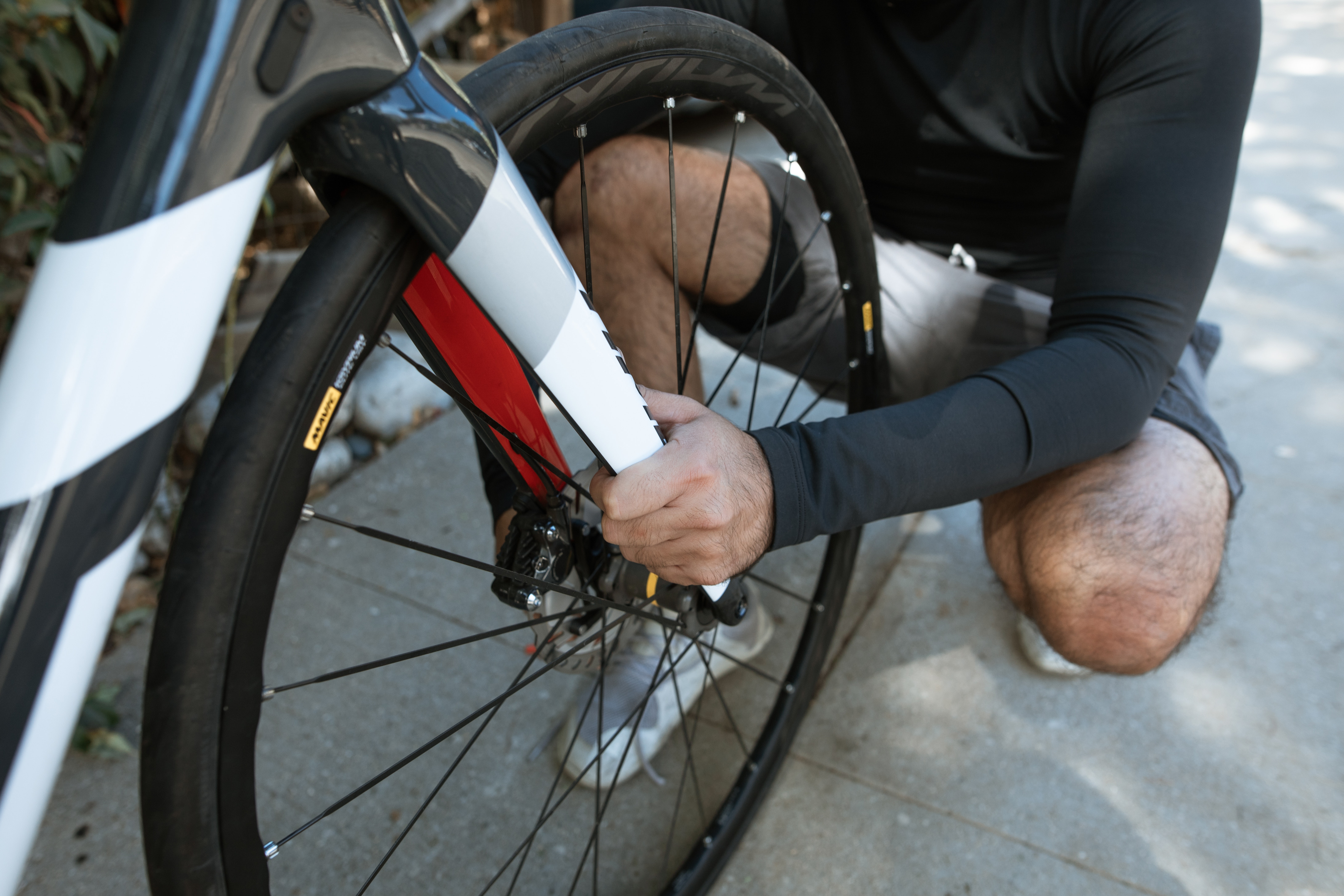With Amazon rolling out a new fleet of cargo bikes and Sustrans promoting personal and business use. Electric cargo bikes are undergoing a bit of a renaissance. Oftentimes they were seen as a bit of a niche product, but they have a lot of utility.
The big pick up has been in last-mile deliveries. Companies have swapped out vans for bikes, reducing carbon emissions and costs. That hasn’t been the only pickup though. Retailers have seen an increase in cargo bike sales to the public too.
So what exactly are e-cargo bikes? And more importantly, why are they becoming so popular?
What Is A Cargo Bike?
At their core cargo bikes are just bikes that are designed to carry more than the rider. By adding a tray to the frame they allow the rider to carry far more than usual bikes. This is great for a lot of reasons which we’ll cover below. But one important thing that helped cargo bikes is making them electric.
The problem with cargo bikes is that the more you want to haul around the higher your total weight. The bike itself is also typically heavier than a standard road bike. None of this is surprising, and it’s not really a problem usually. If you were just using your cargo bike to do some shopping each week that weight is fine. If you have to spend all day making deliveries on it you might start to notice though.
When a motor and battery is added things get a lot easier. You no longer need to take the full weight of what you’re carrying, the bike does it. Have a look at Babboe’s guide to cargo bike weight. With a non-electric cargo bike and the max capacity of a three wheeler you are carrying 165kg. About 364lbs. Now of course the balance affects how that feels. But it’s still a lot of weight.
What Does This Mean For Last-Mile Delivery?
First of all any large scale last-mile delivery is going to be tough using non-electric cargo bikes. That is a lot of extra weight on a rider over the course of a shift. But by swapping to electric cargo bikes companies are able to cut CO2 emissions and lower the cost of running their vehicles. This is particularly true if they’re using petrol powered vans. The lower cost of charging an electric bike makes it true of electric vans too though. When it comes to repairs it’s a lot cheaper to replace and repair bike frames and batteries too.
Cargo bikes aren’t the solution for every company either. Companies who are shipping a lot of bulk orders still have use for vans. Your new four poster bed probably isn’t arriving by bike. Cargo bikes serve a niche, they aren’t going to completely replace van deliveries. The bulk of last-mile deliveries aren’t bulky products though. They’re small to medium sized boxes.
By swapping these sizes of parcel to cargo bikes it allows us to take vans off the roads. Not only that it frees up room in necessary vans to carry more bulk parcels per van. Cargo bikes allow us to create a knock on effect like this. By relegating vans to only bulky deliveries they need to be deployed less. This means lower emissions but also less time with a delivery stuck in traffic, so more cost effective deliveries.
E-Cargo Bikes At Home
Using a cargo bike for your day to day life is something that’s starting to catch on. While they used to be unpopular retailers have seen an increase in sales. If you want to leave the car at home then getting a cargo bike is a great idea. They let you run errands that are tough on a regular bike.
I know I sing the praises of E-bikes a lot. But I also have to acknowledge their limitations. Doing a week’s worth of shopping for a full family isn’t usually practical on an E-bike. To be able to have the space to carry everything back you need to take the car. Honestly, with enough shopping to do, even walking is easier, but that only works if you’re within walking distance.
Cargo bikes help to mitigate this. The bed of a cargo bike means you could carry 50-100kg depending on the model. Some bikes can carry even more. People can also use the bed of the bike for carrying children or pets. When you look at it, cargo bikes are a great way to replace the car day to day. Regular E-bikes are great for running light errands and commuting but for heavier duty tasks like shopping cargo bikes have an advantage.
They’re not perfect though. Like we’ve mentioned they’re heavier and they’re bulkier. This makes them worse for something like commuting. Ideally people would be able to have both a road bike and a cargo bike. Let’s be honest though a lot of people don’t have the money or space for that. Ultimately the best thing to do is look at your circumstances. I personally get more utility from a standard road bike than a cargo bike. Someone with children might find a cargo bike better.
So What Do Cargo Bikes Really Offer?
Cargo bikes offer a better last-mile delivery service. By taking vans off the road, cargo bikes reduce CO2 emissions, reduce congestion and reduce costs. This means cleaner and more efficient deliveries for customers. Cheaper and more efficient delivery for companies. Cargo bikes just make a lot of sense for delivery. There are some things that exist outside their niche, but generally an electric carbon bike is a better option than a van.
At home cargo bikes are a bit more niche, but people are realising their potential. If you need to carry a lot, or you want to bring your pet with you cargo bikes can see great use. If you’re unlikely to do any of that I’d stick to road bikes. They’re a little heavier and more expensive. So without a reason they might not be worth it. Riders just need to weigh the pros and cons. They are worth weighing though instead of dismissing cargo bikes outright.
Yes, cargo bikes are undergoing a bit of a renaissance.
Large scale implementation at last-mile delivery companies and private sales are both growing. This makes them a great market to look at. If you don’t have any cargo bikes in your line up, talk to us about designs. If you just want to amp up your assembly we can do that too.



